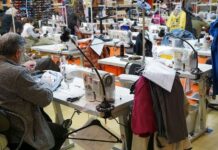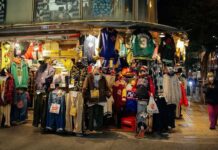In an evolving global economy, the fashion industry faces numerous challenges, particularly concerning tariffs. Recent analyses reveal that current tariff policies are adversely affecting smaller, more sustainable fashion brands rather than the larger corporations often targeted by these regulations.
The imposition of tariffs, initially intended to protect domestic industries, has unintentionally placed a heavier burden on environmentally conscious companies that prioritize sustainable practices. These smaller brands, which typically have fewer resources to absorb increased costs, struggle to compete against larger corporations that can more easily manage such financial pressures.
The Misalignment of Tariff Policies
Tariffs are designed to level the playing field, but they often misfire, harming those who are striving to make a positive impact in the industry. For instance, many sustainable fashion brands rely on ethically sourced materials and fair labor practices, which can increase production costs. When tariffs are applied, these additional costs can become overwhelming, forcing some of these companies to either raise prices or reduce their commitment to sustainability.
Interestingly, the larger fast-fashion brands, which contribute significantly to environmental degradation, are often able to navigate these tariffs with greater ease. They typically operate on a larger scale, allowing them to absorb costs that smaller brands cannot afford. This dynamic creates an uneven playing field where the very companies that aim to promote sustainability bear the brunt of financial penalties.
The Need for Reassessment
As the fashion landscape continues to change, it becomes increasingly crucial to reassess the impact of tariff policies. A focus on supporting small, sustainable brands can drive innovation and lead to more environmentally friendly practices across the industry. Policymakers should consider tailoring tariff regulations to better align with the values of sustainability rather than inadvertently penalizing those who are trying to make a difference.
Encouragingly, there is a growing movement among consumers who prioritize sustainability and ethical practices in their purchasing decisions. By supporting small brands that reflect these values, consumers can play a pivotal role in shaping the future of the fashion industry.
A Call for Inclusive Policies
In conclusion, the current tariff policies must be revisited to ensure that they support, rather than hinder, the progress of sustainable fashion brands. By fostering an environment that encourages the growth of companies committed to ethical practices, the fashion industry can move toward a more sustainable future. Policymakers have the opportunity to recognize the significant role that these smaller brands play in fostering a healthier planet and economy.
The path forward should prioritize inclusivity, ensuring that tariffs and trade policies pave the way for positive change, rather than stifling it. Only by supporting those who are dedicated to sustainability can the fashion industry truly evolve and address the pressing environmental challenges it faces.

































